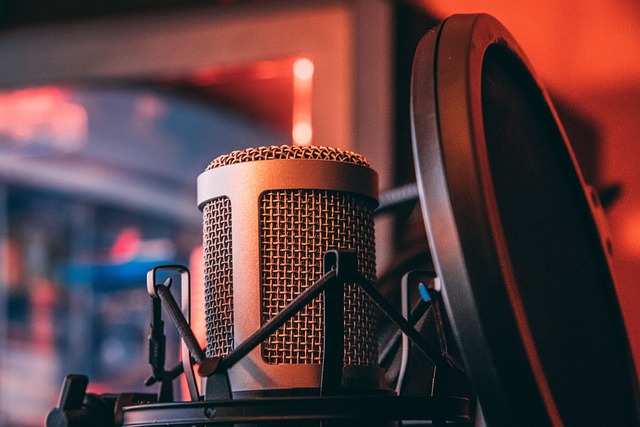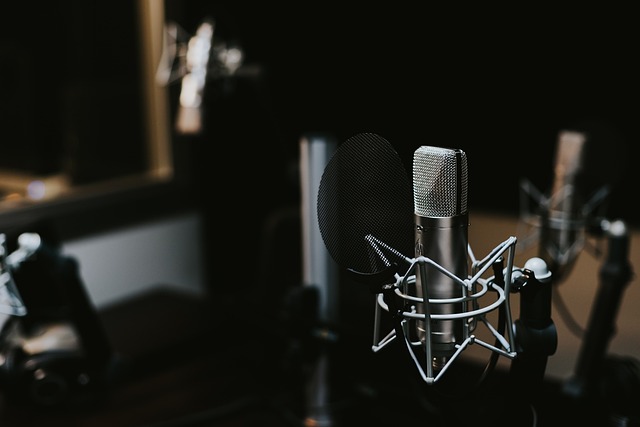AI websites for music production have revolutionized the industry by offering intuitive interfaces, generative models, and machine learning algorithms that cater to both beginners and professionals. Tools like Amper Music, AIVA, and Melodrive generate custom compositions, enhance sound quality, and democratize access to music creation, with case studies showing their successful application in chart-topping singles. As AI technology advances, these platforms continue to shape a dynamic musical landscape by personalizing playlists, discovering new talent, and creating novel genres, making high-quality music production accessible to all.
“Unleash your creativity with the power of AI music tools! In today’s digital landscape, these innovative platforms are revolutionizing music production. Our comprehensive blog guides you through the AI music tool ecosystem, from understanding their fundamentals to identifying key features. We dive into the top AI music production platforms, explore real-world case studies, and gaze into the future, predicting how AI will shape the industry. Discover the perfect ai website for music production and elevate your creative process.”
- Understanding AI Music Tools for Production: A Brief Overview
- Key Features to Look For in an AI Music Website
- Top AI Music Production Platforms Compared: Capabilities and Strengths
- Case Studies: Real-World Applications of AI in Music Creation
- Future Implications: How AI Will Shape the Music Industry
Understanding AI Music Tools for Production: A Brief Overview

AI music tools have revolutionized the music production industry, offering a new breed of creative possibilities and streamlining workflows. These tools leverage advanced algorithms to generate, manipulate, and enhance musical content, from composing melodies to creating unique sound effects. An ai website for music production typically provides users with intuitive interfaces, allowing them to experiment with AI-powered features like generative models, natural language processing for music input, and machine learning algorithms that adapt to individual styles.
By understanding the capabilities of these tools, musicians and producers can harness the power of AI to accelerate their creative processes. Whether it’s generating initial musical sketches, automating repetitive tasks, or exploring novel sonic landscapes, AI music tools are transforming how we create and produce music. This brief overview highlights the potential of these technologies, setting the stage for an in-depth exploration of various ai music production platforms available today.
Key Features to Look For in an AI Music Website

When exploring AI websites for music production, several key features stand out as essential. Firstly, look for intuitive user interfaces that cater to both novice and experienced producers. These tools should offer a seamless experience, allowing users to create and modify music effortlessly. The ability to generate custom melodies, harmonies, and rhythms using natural language prompts or interactive interfaces is a significant advantage.
Additionally, advanced AI music websites should provide diverse sound libraries, including a wide range of instruments, effects, and samples. This ensures producers can access an extensive collection of high-quality sounds tailored to various musical genres. Collaboration features, such as real-time sharing and feedback mechanisms, are also valuable for remote production setups. These functionalities enhance productivity and foster creativity among team members in the music production industry.
Top AI Music Production Platforms Compared: Capabilities and Strengths

In the realm of music production, Artificial Intelligence (AI) tools are emerging as game-changers, offering a new level of creativity and efficiency. When it comes to AI websites for music production, several platforms stand out with their unique capabilities and strengths. Let’s take a look at some of the top contenders in this field.
One notable platform is Amper Music, known for its ability to generate high-quality, custom music compositions based on user input. It offers an extensive library of styles and genres, allowing producers to create diverse tracks quickly. Another leading AI music tool, AIVA (Artificial Intelligence Virtual Artist), focuses on composing original music for films, games, and advertisements. Its advanced algorithms can produce complex and emotional scores, making it a favorite among industry professionals. Additionally, tools like Melodrive specialize in ambient and atmospheric music generation, perfect for creating immersive soundscapes. Each of these platforms brings something unique to the table, catering to different needs within the music production industry.
Case Studies: Real-World Applications of AI in Music Creation

In recent years, the intersection of artificial intelligence (AI) and music production has sparked immense interest within the industry. AI websites for music production are now abundant, each offering unique features and capabilities. From generating melodies to enhancing sound quality, these tools are transforming how musicians create and refine their work. For instance, some AI models have been used to compose entire songs, showcasing remarkable creativity in generating harmonious structures and lyrics.
Case studies reveal that AI is not just a novelty but a powerful asset for music producers. For example, one study highlighted how an AI algorithm assisted in producing a chart-topping single, contributing to its distinctive sound. This application demonstrates the potential of AI to elevate musical artistry. As these technologies continue to evolve, they promise to democratize music production, making it more accessible and efficient for creators worldwide.
Future Implications: How AI Will Shape the Music Industry

As AI continues to advance, its implications on the music industry are vast and exciting. The future of music production is poised to be revolutionized by artificial intelligence, offering unprecedented opportunities for creativity and efficiency. AI-powered tools can analyze vast musical datasets, learn from them, and generate unique compositions, potentially replacing or augmenting human musicians and producers. This shift could democratize music creation, allowing individuals without formal training to produce high-quality tracks on an ai website for music production.
Furthermore, AI algorithms can enhance mixing and mastering processes by automatically adjusting audio levels, applying effects, and identifying issues that might be missed by the human ear. With these advancements, music production may become more accessible, faster, and more cost-effective. AI’s ability to process complex patterns and structures in music also opens doors for generating personalized playlists, discovering new talent, and even creating entirely new genres, shaping a dynamic and ever-evolving musical landscape.
In conclusion, AI music tools have emerged as a game-changer in the music production industry, offering unprecedented capabilities and streamlining creative processes. As we’ve explored through our detailed comparisons of top platforms and real-world case studies, these tools empower musicians and producers with advanced features like automated composition, personalized sound generation, and intuitive interfaces. Moving forward, AI’s role in music creation is poised to expand exponentially, revolutionizing everything from hit song production to accessibility in the industry. For those seeking to leverage the power of AI for their musical projects, understanding key features and future trends will be essential as we navigate this exciting new landscape of music making.
